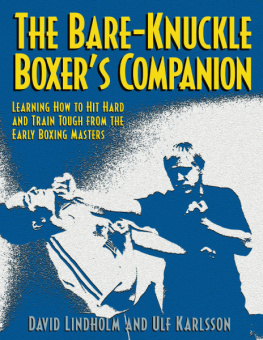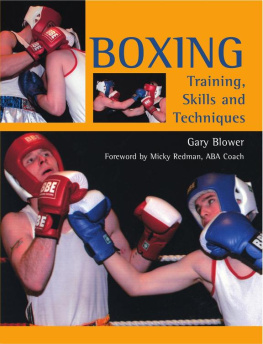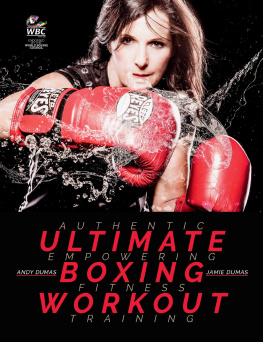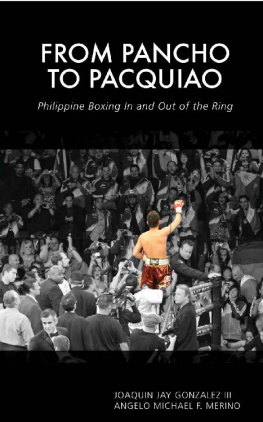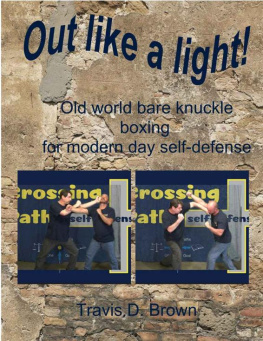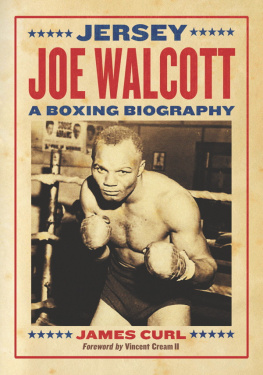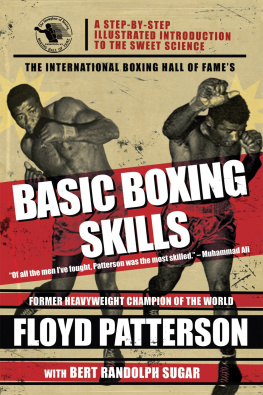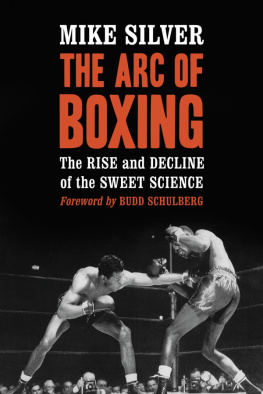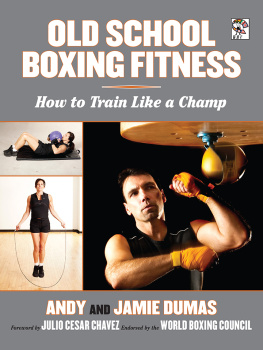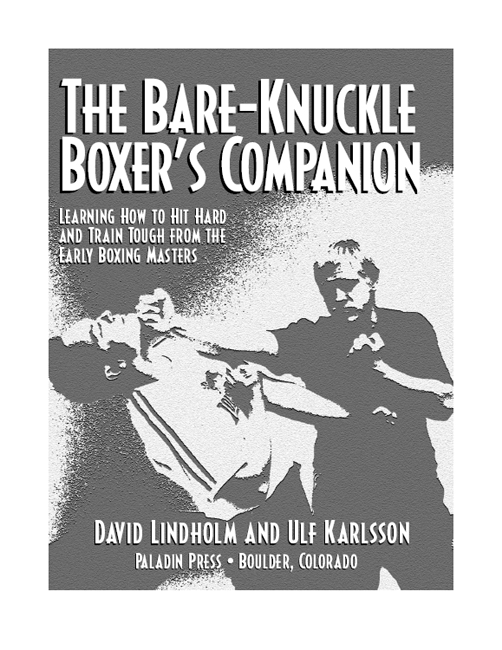
Also by David Lindholm:
Sigmund Ringecks Knightly Art of the Longsword (with Peter Svrd)
Sigmund Ringecks Knightly Arts of Combat: Sword and Buckler Fighting, Wrestling, and Fighting in Armor (with Peter Svrd)
Masters of Medieval and Renaissance Martial Arts: Rediscovering the Western Combat Heritage (contributor)
The Bare-Knuckle Boxers Companion: Learning How to Hit Hardand Train Tough from the Early Boxing Mastersby David Lindholm and Ulf Karlsson Tada
Copyright 2009 by David Lindholm and Ulf Karlsson Tada
ISBN 13: 978-1-58160-700-0
ePub ISBN: 9781610047043
PDF ISBN: 9781610047036
Printed in the United States of America
Published by Paladin Press, a division of
Paladin Enterprises, Inc.,
Gunbarrel Tech Center
7077 Winchester Circle
Boulder, Colorado 80301 USA
+1.303.443.7250
Direct inquiries and/or orders to the above address.
PALADIN, PALADIN PRESS, and the horse head design
are trademarks belonging to Paladin Enterprises and
registered in United States Patent and Trademark Office.
All rights reserved. Except for use in a review, no portion of this book may bereproduced, stored in or introduced into a retrieval system, or transmitted inany form without the express written permission of the publisher. Thescanning, uploading and distribution of this book by the Internet or any othermeans without the permission of the publisher is illegal and punishable by law.Please respect the authors rights and do not participate in the any form ofelectronic piracy of copyrighted material.
Neither the author nor the publisher assumes any responsibilityfor the use or misuse of information contained in this book.
Visit our website at www.paladin-press.com
WARNING
Some of the techniques depicted in this book are dangerous. It is not the intent of the authors or publisher to encourage readers to attempt any of them without proper professional supervision and training. Attempting to do so can result in severe injury or death. Do not attempt any of these techniques or drills without the supervision of a qualified instructor.
The authors, publisher, and distributors of this book disclaim any liability from any damage or injury of any type that a reader or user of information contained in this book may incur from the use or misuse of said information. This book is for academic study only.
CONTENTS
INTRODUCTION
This book deals with the European art of fighting by using the hands for strikingthe martial art of pugilism, or bare-knuckle boxing. We are not talking about the modern sport of boxing. We are going to deal with something else here; namely how to fight using your hands without gloves, wraps, and other aids. The modern sport of boxing is a tough and valuable practice that certainly has self-defense applications, but it is an athletic contest, which means it is regulated and relatively safe. Bare-knuckle boxing, on the other hand, is historically speaking a martial art, at least in the modern sense, as well as a sport. It involves slightly different techniques, methods of training, and even perhaps another sort of fightersimilar to the modern boxer, yet not identical.
Our book is intended as a how-to guide, a companion of sorts, rather than a discourse on the history of bare-knuckle boxing. Weve included some aspects of history, because it is important to understand the context of ones field of study. But our main focus is to extract the practical material from historical bare-knuckle boxing and show how it can be applied in modern self-defense.
Exceptionally skilled people who fight with bare hands still exist today. I am thinking of the Irish and the Gypsies, who stand out as the last proponents of the old bare-knuckle art. If you have a chance, seek them out and learn from them and assimilate what is good. Learn what you can from the old masters we deal with in this book, as well from such great boxers as Sullivan, Dempsey, Marciano, and Ali. Fighting unarmed with the hands is a simple concept but a complex skill, too complex to be encompassed by one book, person, or martial art system. Therefore, learn from as many relevant sources as possible.
Dont be fooled by the seemingly quaint, antiquated poses of the boxers in the period illustrations. The fighters of the bare-knuckle era were tough men and skilled combatants. They had to be in order to endure brutal, often bloody bouts that could last for hours. To demonstrate their techniques as clearly as possible, we have adapted their somewhat formal postures. When actually applying bare knuckle in a self-defense situation or during a training session, the action would be much more dynamic.
Please remember that a person who trains in bare-knuckle boxing is training to be a hard hitter. Therefore, be responsible with what you do with this knowledge, whether in training or in a real confrontation.
WHO ARE WE?
My name is David Lindholm, and I have an MA in history and medieval archaeology, amongst a whole lot of other degrees, from Lund University in Sweden (and other places, come to think of it). I have been practicing martial arts since 1977, when my father took me to a wrestling club. I have trained in karate, boxing, sport fencing, iaido, kendo, wrestling, and tai chi chuan, but since 1996 my main fields have been historical European martial arts and Japanese koryu sword arts. I have written on the medieval long sword, sword and buckler, medieval wrestling, and the quarterstaff.
My interest in the early European martial arts led me to consider the art of pugilism. During my university studies, I had come across illustrations of Greek and Roman pugilists that piqued my curiosity. Later, I discovered material on post-medieval bare-knuckle boxing in libraries and archives. This book is a result of that curiosity and the subsequent workand lots of sweatthat went into my hands-on study of bare-knuckle boxing.
Ulf Karlsson studied business administration and Japanese at Vxj University and later took part in the Programme for East and South East Asian Studies (with a focus on Japan) at Lund University, including an exchange year at Waseda University. He started training in Taidoa Japanese martial art created by Okinawan Seiken Shukuminein 1984 and has instructed in that art since 1987, currently holding the grade of Godan Renshi. Since 1992, Ulf has visited Japan more than 10 times to train, usually staying for three months per visit. He was a member of the Swedish Taido team from 19911999 and was the ladies national team coach from 20032005. He has taught Taido in several countries, including Denmark, Finland, Netherlands, and Japan. Currently, Ulf is exploring the classical kata of the teacher Soko Kishimoto as a way to better understand the roots of Taido. Ulf has also trained in ESDS (Explosive Self Defence System) with Slavo Godzik, Splashing Hands with James McNeil, Ryu Te with Robert Rousselot, and most recently the Okinawan martial art Te with Mark Bishop.
Remember, this is our own interpretation of the sources; as such, it is bound to include our own misunderstandings and preconceptions. Therefore, be critical and always return to the original sources. Please also remember that still pictures will always, to some extent, fail to capture the movement and dynamics of all martial arts. The techniques should be understood as changing, dynamic, and expressive rather than static.
Chapter
THE PUGILISTIC ARTS IN EUROPE
Our aim for this chapter is not to write an in-depth history of the art of pugilism. Other more learned scholars can and have done that. Instead, we will sketch a brief history that serves as a backdrop to the actual techniques and advice on how to fight that follow in the technique chapters.
Next page
